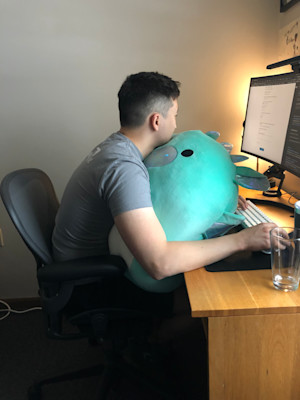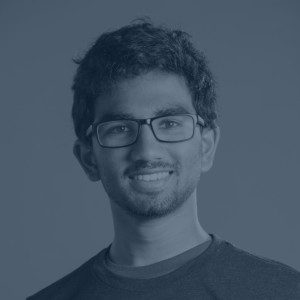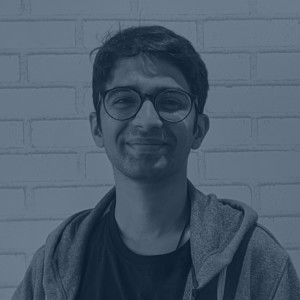Damir Temir, 21

Damir Temir grew up in the Central Asian country of Kazakhstan where he seized the chance to enroll in his high school’s sole computer science class—a rare offering. In that program, he developed a project in PHP, MySQL, and HTML. He was instantly hooked. Damir quickly set his sights on coming to the U.S. and majoring in computer science. “My love for the field has been growing ever since,” he says.
This was easier said than done, however. Damir experienced a great deal of social pressure to stay on a career path that was predetermined for him by his elders. “My grandfather, who is my role model and a true mentor in life, wanted me to pursue finance. He saw me becoming a banker one day,” he explains. Armed with courage, passion, and self-belief, Damir eventually made the move to Chicago and enrolled at the University of Illinois Springfield.
One cold and snowy Midwestern morning, Damir opened the MLH newsletter and saw an invitation to join a Local Hack Day. He wasn’t quite sure what a hackathon really was or if he’d enjoy it, but he was open to finding out more. He joined a Discord community to find a guild and some mentorship. “Joining that guild was the best introduction to the MLH community I could ever wish for,” he recalls, adding that the people were kind, helpful, and welcoming to beginners.
That first hackathon helped Damir realize that he was moving forward. “Coming to the U.S. was a big shock for me, and it took me a very long time to adapt to the college environment,” he admits. However, he has no doubt that following his own interests have been to his benefit. “It is not a bad idea to go against the grain of a cultural mindset and do something that you want,” he says.
Having fallen in love with hackathons, Damir decided to apply for the MLH Fellowship. Initially he was rejected from the full program but jumped on the chance to participate in the Fellowship’s prep program when it began last summer. He feels like the experience—particularly the daily standups—was “absolutely amazing.” He was accepted to the full MLH Fellowship shortly after. Since being accepted once, he’s since been a part of three batches of the MLH Fellowship.
Nine hackathons in (and counting), Damir says that his favorites were the MLH Fellowship Orientation Hackathons. “They are a super cool way of onboarding fellows to what MLH is all about: having fun developing as one big community.” Through the fellowship, he learned new technologies, met more people, and accepted more responsibilities. However, Damir admits that he kept returning to the fellowship because of the people. “I did not want to leave an amazing community of which I grew fond of.”
As a three-time MLH Fellowship Alumni, Damir began wondering what drove the machine from the inside and decided to join the ranks of those who made his experience so enjoyable. Now he serves as an admissions specialist and as a Pod Leader for the summer fellowship, working with two fellows who are contributing to open-source projects run by a cancer research hospital. He also contributes to the production engineering track hosted this summer in collaboration with Meta.
Quick Facts

Damir Temir, 21

Damir Temir grew up in the Central Asian country of Kazakhstan where he seized the chance to enroll in his high school’s sole computer science class—a rare offering. In that program, he developed a project in PHP, MySQL, and HTML. He was instantly hooked. Damir quickly set his sights on coming to the U.S. and majoring in computer science. “My love for the field has been growing ever since,” he says.
This was easier said than done, however. Damir experienced a great deal of social pressure to stay on a career path that was predetermined for him by his elders. “My grandfather, who is my role model and a true mentor in life, wanted me to pursue finance. He saw me becoming a banker one day,” he explains. Armed with courage, passion, and self-belief, Damir eventually made the move to Chicago and enrolled at the University of Illinois Springfield.
One cold and snowy Midwestern morning, Damir opened the MLH newsletter and saw an invitation to join a Local Hack Day. He wasn’t quite sure what a hackathon really was or if he’d enjoy it, but he was open to finding out more. He joined a Discord community to find a guild and some mentorship. “Joining that guild was the best introduction to the MLH community I could ever wish for,” he recalls, adding that the people were kind, helpful, and welcoming to beginners.
That first hackathon helped Damir realize that he was moving forward. “Coming to the U.S. was a big shock for me, and it took me a very long time to adapt to the college environment,” he admits. However, he has no doubt that following his own interests have been to his benefit. “It is not a bad idea to go against the grain of a cultural mindset and do something that you want,” he says.
Having fallen in love with hackathons, Damir decided to apply for the MLH Fellowship. Initially he was rejected from the full program but jumped on the chance to participate in the Fellowship’s prep program when it began last summer. He feels like the experience—particularly the daily standups—was “absolutely amazing.” He was accepted to the full MLH Fellowship shortly after. Since being accepted once, he’s since been a part of three batches of the MLH Fellowship.
Nine hackathons in (and counting), Damir says that his favorites were the MLH Fellowship Orientation Hackathons. “They are a super cool way of onboarding fellows to what MLH is all about: having fun developing as one big community.” Through the fellowship, he learned new technologies, met more people, and accepted more responsibilities. However, Damir admits that he kept returning to the fellowship because of the people. “I did not want to leave an amazing community of which I grew fond of.”
As a three-time MLH Fellowship Alumni, Damir began wondering what drove the machine from the inside and decided to join the ranks of those who made his experience so enjoyable. Now he serves as an admissions specialist and as a Pod Leader for the summer fellowship, working with two fellows who are contributing to open-source projects run by a cancer research hospital. He also contributes to the production engineering track hosted this summer in collaboration with Meta.
Quick Facts




